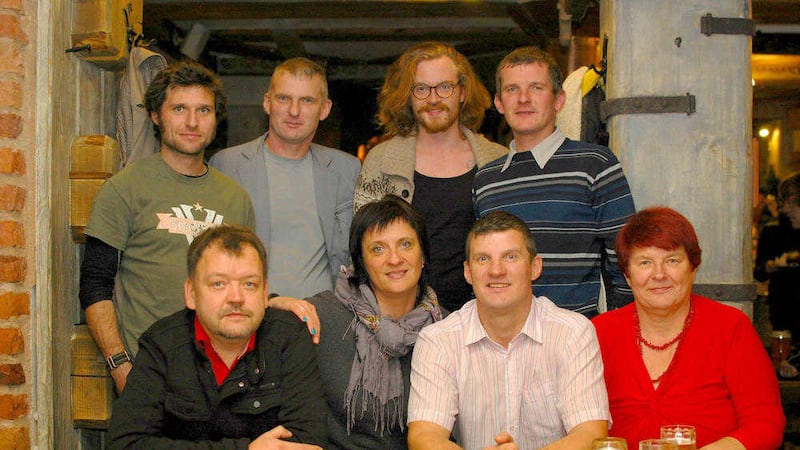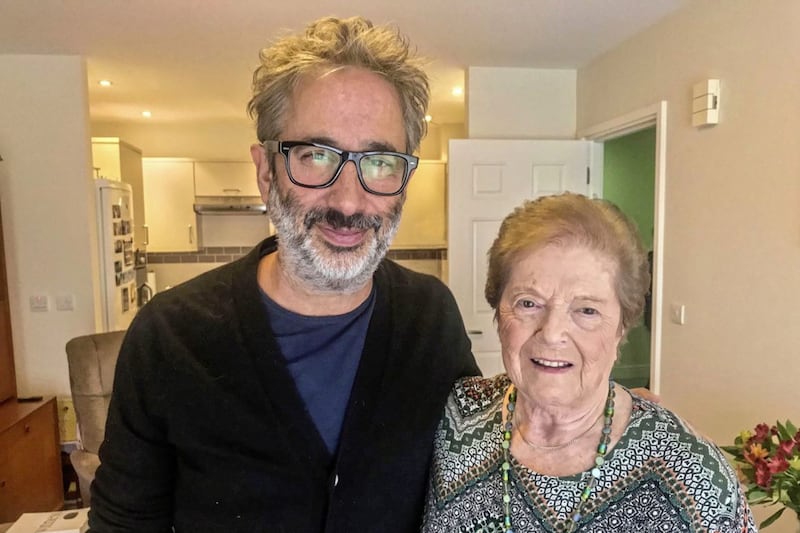Our Guy in Latvia, Channel 4, Monday at 9pm
It certainly wasn’t intended, but Our Guy in Latvia appeared on our screens just as the first Syrian refugees arrived in Northern Ireland.
And it was striking to find out that Guy Martin, a man more English than cricket, is the descendant of a Latvian who fought for the Nazis.
It was but another example of the ridiculousness that says the foreigner is the other.
Martin, who has found fame as a petrol-head television presenter, is quintessentially northern English.
His down-to-earth, cheeky chappy persona has brought him much greater success that his road racing prowess.
His struggles on the bike have increased along with his television work and earlier this year he almost killed himself in a crash on Northern Ireland’s roads,
Until now the topics of his television exploits have been engines, machines and speed.
He came to prominence when he tried to break speed records on a bicycle, on a sled, a hovercraft and well, you get the idea. It was called ‘Speed with Guy Martin’.
He did have a series about travelling through India (Our Guy in India) but, rather predictably, that was on a motorbike and the series was as much about riding and maintaining a machine in India than its culture and people.
Our Guy in Latvia is his first television show without machines and I think it was a huge success.
It told us the story of Walter Kidals, a Latvian who fought on the German side in the Second World War and ended up moving to Lincolnshire and raising a family.
But the story wasn’t that simple - it rarely is with people who flee their homes - because Walter (an anglicised version of his Latvian name) was forced to fight for the Nazis.
As a conscript in the Latvian Legion, he fought against the Russians as they advanced into Nazi-occupied Europe.
He was lucky to survive; seeing his best friend shot by a sniper and comrades crucified by the roadside.
No wonder he didn’t tell him family about the war years in any detail, his daughter, Guy’s mother told us.
After the Germans surrendered, Walter was kept in a prisoner of war camp but was released after a year and took up an offer from the British government to resettle in northern England.
Guy was close to his grandfather and respected his insistence on self-reliance.
“I always looked up to him but I admire him even more now. His eyes have seen more than I’ll see. If I had my time again, sitting in his shed, knowing what I know now, I’d try to talk to him about what he went through.”
Maybe in a generation, a child of Northern Ireland will ask the same questions of the war in Syria.
***
Panorama - The Taliban Hunters,, BBC 1, Monday at 8.30pm
This special on the Taliban in Pakistan contained the most remarkable interview.
Presenter Mobeen Azhar, who spoke Urdu, interviewed two Taliban suspects in police custody in Karachi.
With sacks over their heads, in handcuffs and sitting on the floor while he sat on a chair above them; they quickly and quietly admitted to a series of crimes, including robbery, kidnap and murder.
In fact, it was the BBC reporter who asked them whether they had murdered people and why.
Azhar then turned to the police chief and asked in English about hearing screaming coming from the interrogation rooms.
When the chief denied torture, our reporter said his answer was open to “interpretation.”
Surely someone in the BBC should see that this interview was entirely inappropriate and that a defence of “the police insisted on me interviewing them with their identities concealed” is ridiculous.







